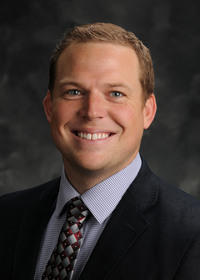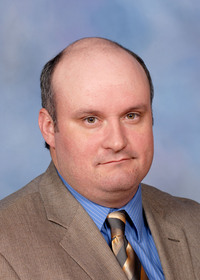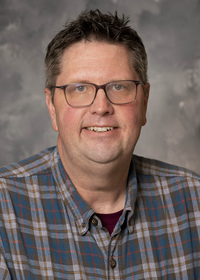Information Possibly Outdated
The information presented on this page was originally released on March 6, 2013. It may not be outdated, but please search our site for more current information. If you plan to quote or reference this information in a publication, please check with the Extension specialist or author before proceeding.
Producers give input on research, training
BILOXI -- Agricultural producers in the coastal region shared their needs and concerns during a Mississippi State University meeting Feb. 25.
The sixth annual Producer Advisory Council meeting was held at MSU’s Coastal Research and Extension Center.
Eleven commodity groups made recommendations and requests for research, educational programming and support by MSU’s Extension Service and the Mississippi Agricultural and Forestry Experiment Station. Commodity groups represented were commercial ornamental horticulture, home horticulture, livestock, forestry, equine, beekeeping, fruits, vegetables, cotton and corn, seafood and aquaculture, and soybeans and peanuts.
“We want to make sure you have the opportunity to give us feedback on the programs and research needed to support your families and businesses,” Patricia Knight, MSU Coastal Research and Extension Center Director, told the group gathered.
MSU Extension Service Director Gary Jackson said Extension is strengthening its ability to serve the public by fine-tuning its efforts to inform the public and improve quality of life for all Mississippians.
“We are proud to provide educational information to communities in all 82 Mississippi counties,” Jackson said. “We want to be sure we are reaching the public with the information they want and need. We need this input from our clientele to make sure we meet those needs.”
As funding becomes more limited, it is important to know what research efforts farmers, producers and small businesses need.
“Coming together here and sharing your ideas helps us to prioritize our research and Extension programs,” said Reuben Moore, associate director of the Mississippi Agricultural and Forestry Experiment Station.
Commercial ornamental horticulture producers requested more training on plant disease controls, labor and human resources issues, and ways to promote Mississippi-grown products and nurseries.
The home horticulture group asked for more information on new plants that enter the market and more educational programs on diseases and weeds of home lawns.
Fruit growers requested an expansion of the “Farm to School” program and more information about how to enter the program. They also asked for publications with nutritional information and recipes to take to farmer’s markets and for assistance promoting Mississippi-grown fruits.
The vegetable group asked for information about different markets and how markets are created. They asked for classes targeted to small-acreage producers on issues such as pollination and U.S. Department of Agriculture inspections. They also suggested research be done to establish which vegetable varieties do well in local markets.
Livestock producers requested guidance on seasonal forages and aggressive pasture maintenance to reduce feed costs. They suggested a greater presence on social media sites to address questions and get current research. Education on crabgrass potential, understanding the cattle market, and marketing of small ruminants also were recommended.
The corn and cotton group asked for more variety trials, information on how growers can maximize technologies, and information on irrigation and on-farm storage.
Soybean and peanut growers said they want more soybean demonstration work, more variety trials and more research on soybean varieties to rotate with peanuts.
Forestry representatives said they need continuing information on the best control methods for wild hogs and online assistance options for landowners.
The seafood and aquaculture group requested an assessment on the need for a local processing plant and direct marketing to customers through MarketMaker. They said educational programming is more helpful to fishermen and processors when it is done at their facilities.
Equine representatives said continuing and expanding the Master Horseman program is a priority. Seminars on handling cattle with horses and controlling wild hogs are other educational needs.
The beekeeping group asked for more information on the relationship between bee decline and pesticide use. They said research on the effects of genetically engineered plants on bees could be helpful in understanding why bee populations are decreasing. They also said they want to explore developing a beekeeping project for 4-H and work with state associations to promote beekeeping.







